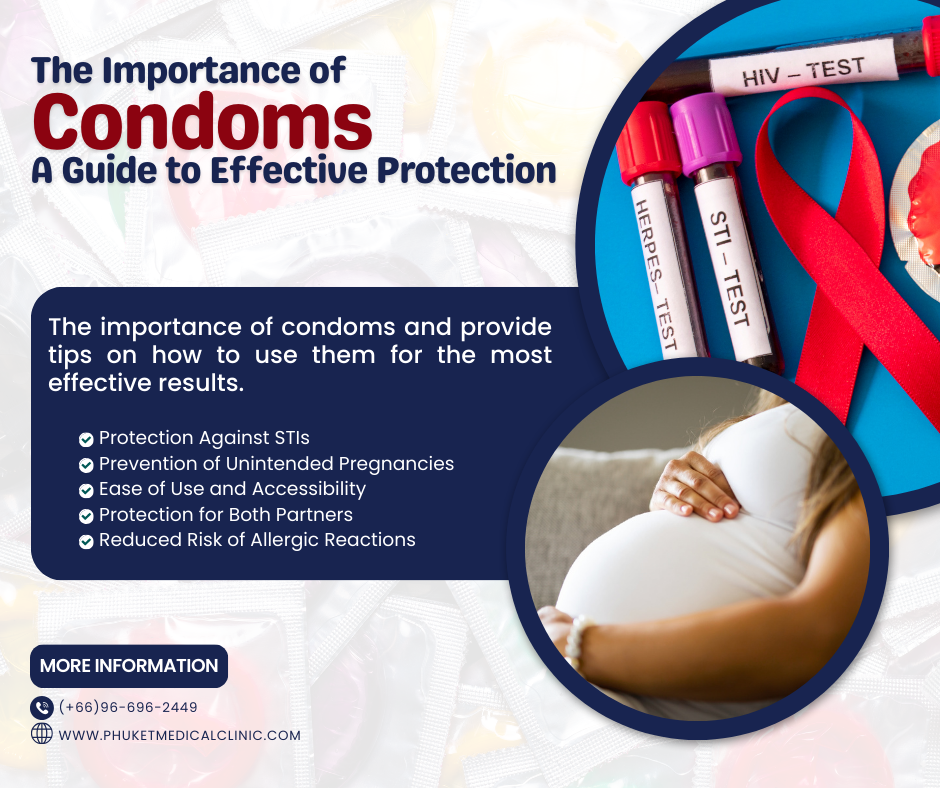In the realm of sexual health and protection, using condoms consistently and correctly is paramount. However, some individuals may wonder if doubling up on condoms can provide an added layer of safety. In this article, we’ll delve into the question: Can you use two condoms for extra protection? We’ll explore the potential risks and benefits of this practice and provide insights to help you make informed decisions about your sexual health.
Guide to the Benefits and Advantages of Using Condoms
In the realm of sexual health, the use of condoms is a widely recognized and effective practice. Whether you’re in a committed relationship or engaging in casual encounters, condoms offer numerous benefits that go beyond preventing unwanted pregnancies. In this article, we will explore the various advantages of using condoms and why they are an essential tool for promoting both sexual health and overall well-being.
STI and Their Effects on Pregnancy
Sexually transmitted infections (STIs) pose significant health risks, and when it comes to pregnancy, they can have additional implications. Understanding the relationship between STIs and pregnancy is crucial for maintaining reproductive health. This article explores the impact of STIs on pregnancy and provides essential information on prevention and management.
Are STI and STD the Same Thing?
Sexually transmitted infections (STIs) and sexually transmitted diseases (STDs) both refer to conditions that are primarily spread through sexual contact. However, the distinction lies in the terminology:
STIs: Sexually transmitted infections are a broader category that includes any infection caused by bacteria, viruses, parasites, or other microorganisms that can be transmitted through sexual activity. Many people infected with an STI may not show symptoms, making early detection and prevention crucial.
STDs: Sexually transmitted diseases are a subset of STIs. These infections have progressed to a point where they cause noticeable symptoms and health problems. STDs are generally seen as more advanced stages of the infections compared to STIs.
The Importance of Condoms: A Guide to Effective Protection
In today’s world, where sexually transmitted infections (STIs) and unintended pregnancies are significant concerns, recommending the use of condoms is more crucial than ever. Condoms are a simple yet highly effective tool for protecting your sexual health. In this article, we will explore the importance of condoms and provide tips on how to use them for the most effective results.
The Importance of STI Testing for Your Health
STI testing, or sexually transmitted infection testing, is a medical examination used to detect the presence of infections that are primarily spread through sexual contact. These infections can be caused by bacteria, viruses, or parasites and may affect the genital area, mouth, throat, and rectum. STI testing is essential for early detection and treatment, as many STIs can be asymptomatic or show mild symptoms that people often overlook.
Guide on How to Check for Gonorrhea and Chlamydia
Sexually transmitted infections (STIs) are a prevalent health concern worldwide, with gonorrhea and chlamydia being two of the most common. Both of these infections can have serious consequences if left untreated, making regular testing crucial for early detection and treatment, can prevent complications and the spread of these infections.
Understanding and Preventing Popular Sexually transmitted infections (STIs)
Sexually transmitted infections (STIs) remain a significant public health concern worldwide, affecting millions of people each year. These infections can have serious consequences for individuals’ health and wellbeing, making it crucial to understand the most common STIs and take proactive measures to prevent their transmission. In this article, we will explore some of the most popular infectious diseases that are transmitted through sexual contact and discuss ways to protect yourself and your partners.
What is Chlamydia & Gonorrhea?
Chlamydia and gonorrhea are two common sexually transmitted infections (STIs) that affect millions of people worldwide. Chlamydia is caused by the bacterium Chlamydia trachomatis, while gonorrhea is caused by the bacterium Neisseria gonorrhoeae. Both infections can be transmitted through vaginal, anal, or oral sex, as well as from an infected mother to her newborn during childbirth. Chlamydia and gonorrhea often show no symptoms or present mild symptoms, which can lead to delayed diagnosis and increased risk of complications. If left untreated, these infections can result in serious health problems, such as pelvic inflammatory disease, infertility, and increased susceptibility to HIV infection. Diagnosis is usually done through laboratory tests, and both infections can be treated with antibiotics. Preventive measures, such as practicing safe sex and regular testing, are crucial in controlling the spread of these STIs.
Symptoms of STIs and signs of different
Sexually transmitted infections (STIs) pose a significant public health challenge worldwide, affecting millions of people each year. Early detection of STIs is of paramount importance as it plays a crucial role in preventing their spread and mitigating potential complications. Many STIs may initially present with mild or even no symptoms, making them difficult to identify without proper testing. However, untreated STIs can lead to severe health consequences, such as infertility, chronic pain, and an increased risk of HIV transmission. Furthermore, identifying STIs at an early stage allows for timely and effective treatment, reducing the risk of long-term health issues and promoting overall well-being. Educating individuals about the importance of early detection empowers them to seek timely testing and adopt preventive measures, fostering healthier and safer sexual practices.










